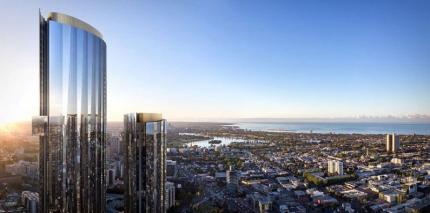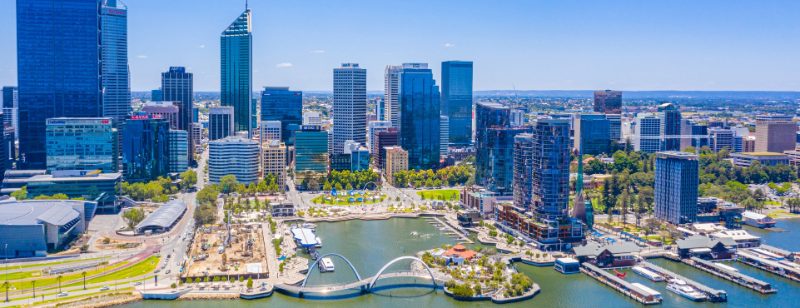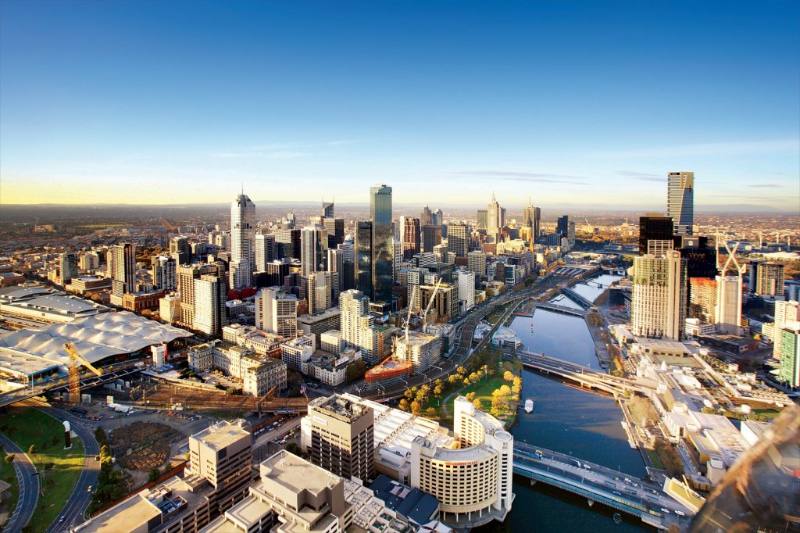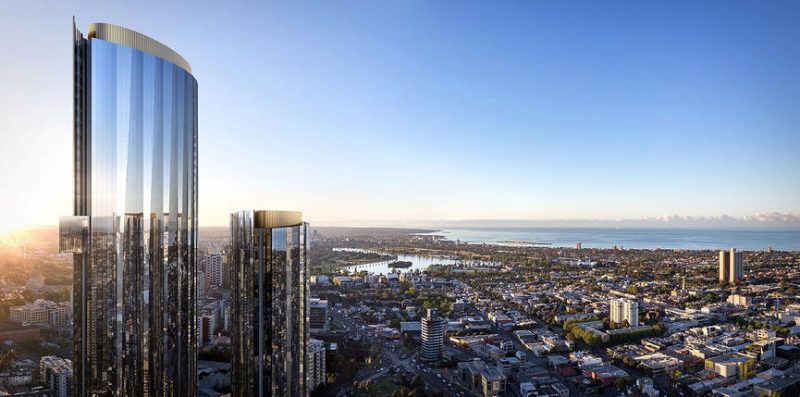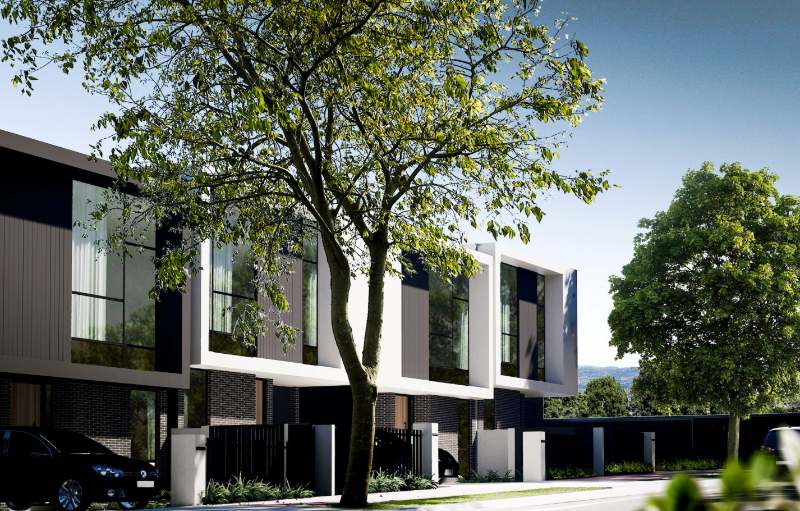Get free consultation
Fill out the form and we will contact you
The Australian real estate market has always been an attractive destination not only for domestic investors but also for international ones. With a stable economy, a safe political environment, and a transparent legal system, real estate investment in Australia is becoming increasingly popular. This article provides a comprehensive overview of the Australian real estate market, along with the opportunities and challenges of investing in it.
The Australian real estate market has experienced several fluctuations in recent years. After a strong price surge from 2020 to 2023, the market saw a slight correction in early 2024. However, by 2025, the market showed signs of stable recovery with notable highlights:
Real estate investment trends in Australia show signs of recovery
Average house prices in major cities have increased by 3–5% compared to 2024.
Rental yields range from 3.5% to 5.2%.
The apartment market in Sydney and Melbourne has recovered after the decline caused by the pandemic.
Suburban and outer-city areas continue to attract interest from first-time homebuyers and investors.
Brisbane: Expected to continue leading in house price growth, with a projected increase of 6–8% in 2025. Investments in infrastructure and preparations for the 2032 Olympics are driving up property prices.
Perth: The market is in a strong recovery phase, with a 7% price increase over the past year. High demand for housing is driven by the booming mining industry.
Adelaide: With average house prices lower than Sydney and Melbourne, Adelaide attracts many investors with stable annual growth of 4–5%.
Sydney: Despite being the most expensive, Sydney remains Australia’s largest real estate market, with high transaction volumes and long-term price growth potential.
Melbourne: The market is gradually recovering after the COVID-19 period, with growing demand for housing due to rapid population growth.
Australia has many potential cities for investment
Real estate investment in Australia by foreigners is subject to strict regulations by the Foreign Investment Review Board (FIRB). As of 2025, the main regulations include:
Mandatory FIRB approval: Most foreign investors must obtain FIRB approval before purchasing property in Australia.
Restrictions on established properties: Non-resident foreigners are generally only allowed to purchase new or under-construction properties unless they hold a permanent visa.
FIRB application fees: Approximately 6,600 AUD for properties under 1 million AUD, increasing with the property value.
Foreign investor taxes: States impose additional purchase taxes ranging from 8% to 12% for foreign buyers.
Vacancy fees: Applied to properties that are not used or rented for at least six months per year.
Real estate investors in Australia need to understand the various taxes involved:
Real estate investment in Australia requires understanding the related taxes
Stamp duty: Ranges from 1% to 7%, depending on the property value and the state or territory.
Land tax: Applied annually to property owners, with rates varying by state.
Rental income tax: Income from renting out property is subject to personal income tax according to the progressive tax scale.
Capital gains tax (CGT): Applied when selling property at a profit, with rates up to 45% for residents and 32.5% for non-residents.
Goods and services tax (GST): Applied at 10% for new properties or commercial land, but generally not applicable to established residential properties.
This is the most common form, where investors purchase property to rent out and earn profit from monthly rental income. In Australia, the average rental yield in 2025 is as follows:
Diverse popular forms of real estate investment in Australia
Apartments: 3.8% - 5.2%
Townhouses: 3.2% - 4.5%
Detached houses: 2.8% - 4.0%
Note: Yields vary by location, with suburban and outer-city areas generally offering higher returns.
This form involves buying land and constructing new properties or renovating/upgrading existing properties to sell at a higher price. Common development projects include:
Subdividing land
Building houses for sale
Renovating and reselling (house flipping)
Developing small-scale apartments
Investing in publicly listed real estate funds on the Australian Securities Exchange (ASX) allows for real estate investment with lower capital and higher liquidity. Major REITs in Australia in 2025 offer dividend yields ranging from 4.5% to 6.2%.
Investing in offices, shopping centers, and industrial warehouses is increasingly popular due to higher yields compared to residential properties:
Offices: 5.0% – 6.5%
Retail: 5.5% – 7.0%
Industrial: 6.0% – 8.0%
Long-term capital growth: Australian property prices have increased on average by 7% per year over the past 25 years.
Passive income: Investors can receive a stable cash flow from rental income ổn định.
Financial leverage: High bank lending capacity, with loans up to 80% of the property value.
Tax incentives: Negative gearing and other tax benefits reduce the overall tax burdenánh nặng thuế.
Inflation protection: Property values often rise during inflation periods, helping protect asset.
Pathway to investment visas: Real estate investment can be part of the process to apply for a Business Innovation and Investment visa (subclass 188).
Settlement opportunities: Combined with business activities, real estate investment can open pathways to long-term residency in Australia.
Educational benefits: Owning property in Australia can help investors’ children access high-quality educationt lượng cao.
Investing in real estate in Australia offers many benefits and challenges
Price volatility: The Australian real estate market can fluctuate according to economic cycles.
Interest rate changes: In 2025, the Reserve Bank of Australia implemented multiple interest rate adjustments, affecting borrowing costs and property prices.
Location risks: Property value is highly dependent on location and can be influenced by regional changes.
Legal barriers for foreigners: FIRB regulations and restrictions on foreign buyers are increasingly strict.
High investment costs: In addition to the purchase price, investors must budget an extra 5–7% for transaction costs.
Remote management: For foreign investors, managing properties from abroad can be challenging.
Higher taxes for non-residents: Non-residents are subject to higher taxes and are not entitled to many of the tax benefits available to residents.
Real estate investment in Australia offers attractive opportunities with long-term growth potential and stable income. However, the market requires thorough research, understanding of legal regulations, and a suitable investment strategy, especially for foreign investors.
If you are seeking opportunities to invest in Australian real estate or want to learn more about settlement through investment, don’t hesitate to contact the experts at Quốc Tịch Thứ Hai for guidance and a tailored plan to achieve Australian citizenship according to your goals..
Fill out the form and we will contact you
